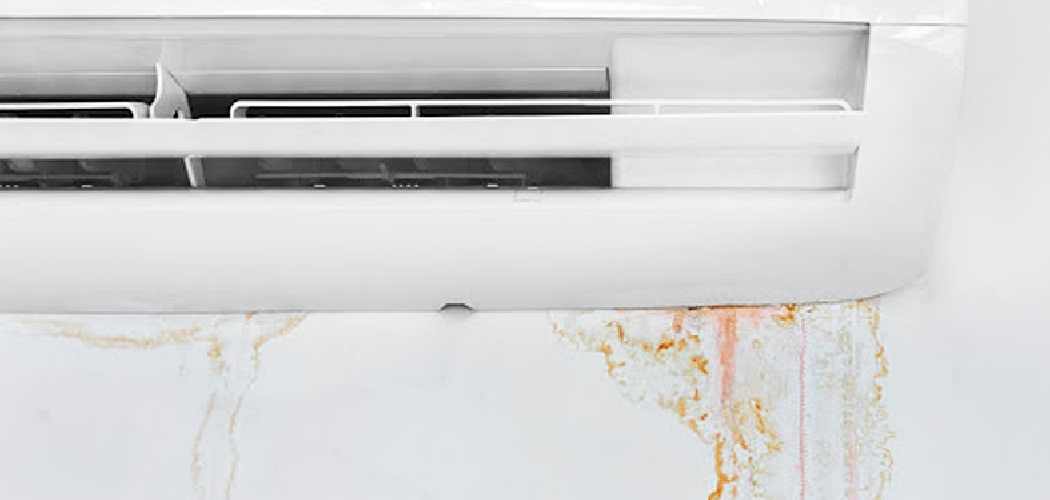When it comes to air conditioning systems, identifying the signs of a leak is crucial for maintaining efficiency and ensuring comfort in your home. Leaks can occur in various forms, primarily involving refrigerant or water, and each type presents its own set of indicators. Understanding these signs can help homeowners address issues promptly, avoiding costly repairs and ensuring optimal performance.
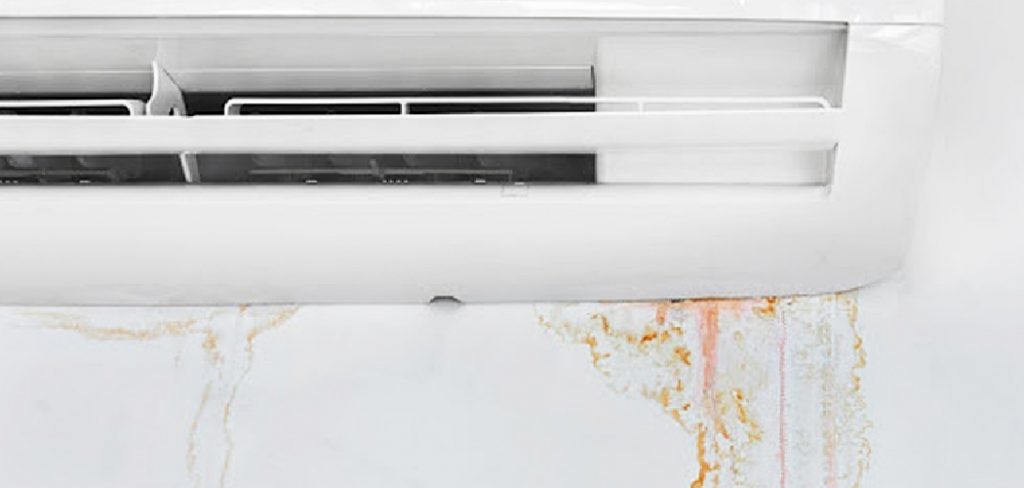
In this guide, we will explore how to tell if ac is leaking refrigerant or water and provide practical tips to assess and manage these situations effectively.
Importance of Identifying Leaks
Identifying leaks in your air conditioning system is essential for several reasons. First and foremost, a refrigerant leak can significantly reduce the cooling efficiency of your unit, leading to higher energy bills and increased wear on the system. If refrigerant levels drop too low, it can even cause the compressor to fail, resulting in expensive repairs or replacement.
On the other hand, water leaks can indicate serious issues such as clogged drains or ductwork problems, which can lead to water damage in your home and promote the growth of mold. By promptly detecting and addressing leaks, homeowners can maintain a comfortable living environment, prolong the lifespan of their air conditioning system, and prevent potential health hazards associated with water damage and mold growth.
Understanding AC Leaks
Air conditioning leaks can generally be categorized into two types: refrigerant leaks and water leaks. Refrigerant leaks occur when the cooling agent, typically a type of gas, escapes from the system due to wear, corroded components, or improper installation. This not only hinders the unit’s ability to cool effectively but can also pose environmental hazards, as many refrigerants contribute to ozone depletion.
Conversely, water leaks are often a sign of condensation issues or blocked drainage lines. These leaks typically result from an overflow in the condensate pan or a failure in the system’s drainage components. Understanding the distinction between these two types of leaks is vital in diagnosing the issue accurately, implementing effective solutions, and ensuring your AC functions properly and efficiently.
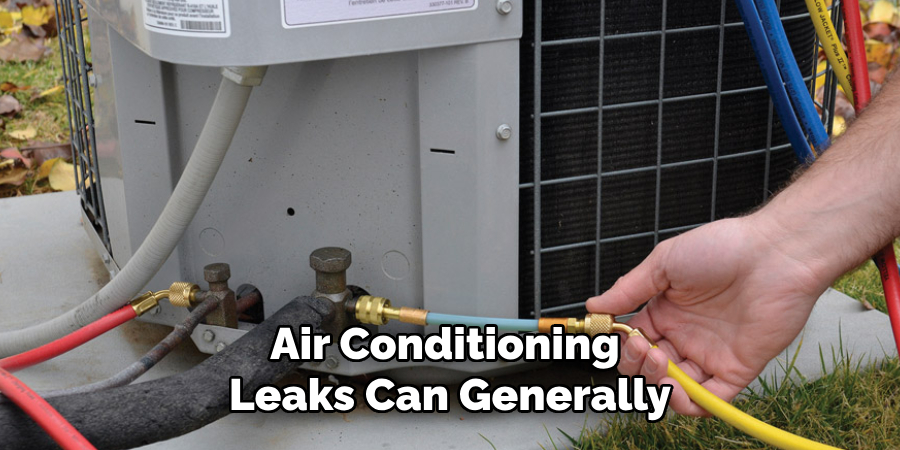
10 Methods How to Tell if Ac Is Leaking Refrigerant or Water
1. Check for Pooled Water Under the AC Unit
One of the easiest ways to tell if your AC is leaking water is by inspecting the area around the indoor unit for water puddles. When the AC cools the air, condensation naturally forms on the evaporator coils. If the condensate drain line is clogged or blocked, this water can overflow and leak around the base of the unit. This type of leak is usually not severe but should be addressed quickly to prevent damage to flooring or walls.
A refrigerant leak, on the other hand, will not cause water pooling, so this is a clear indication that the issue is related to the drainage system.
2. Monitor Cooling Performance for Refrigerant Leaks
If your AC is leaking refrigerant, you may notice a significant drop in cooling performance. Refrigerant is responsible for absorbing heat from inside your home and releasing it outside, so when levels are low, the system cannot cool efficiently. If you find that your AC is blowing warm air or taking much longer to cool your home than usual, this could be a sign of a refrigerant leak.
Unlike water leaks, refrigerant leaks are not immediately visible, so paying attention to the cooling performance is crucial in diagnosing this issue.
3. Inspect the Drain Pan for Water Leaks
The drain pan beneath the AC unit is designed to catch water that drips from the evaporator coils during normal operation. If the pan becomes cracked or damaged, it can lead to water leaks. Inspect the pan for any signs of standing water or corrosion, which could indicate a water leak. If you find water in the pan and it’s overflowing, the issue is likely related to condensation.
Refrigerant, on the other hand, does not accumulate in the drain pan, so finding water here suggests the problem lies with water drainage, not a refrigerant leak.
4. Check for Ice on the Evaporator Coils
Ice forming on the evaporator coils is a common sign of a refrigerant leak. When refrigerant levels are low, the coils cannot absorb enough heat, causing the temperature of the coils to drop below freezing. As a result, moisture in the air freezes on the coils, leading to frost or ice buildup.
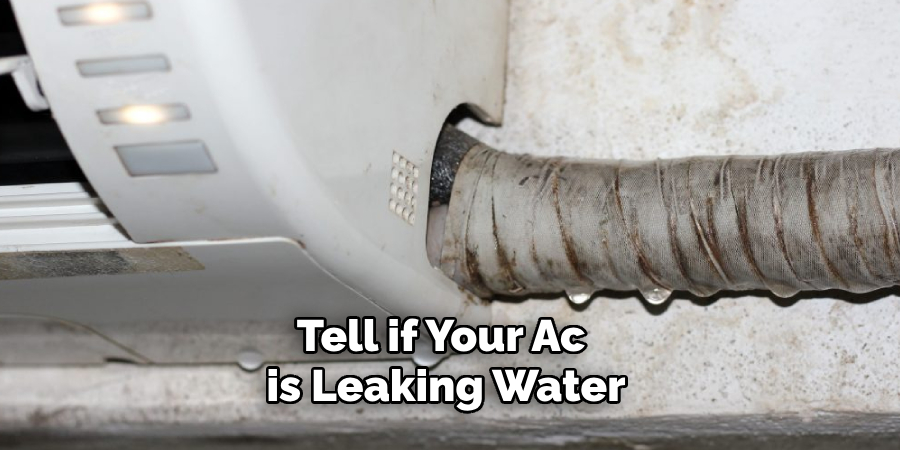
If you notice ice on the coils or around the AC unit, it’s a strong indicator that your system is low on refrigerant. Water leaks typically do not cause ice to form, so this is a distinct sign of a refrigerant issue.
5. Look for Oily Residue Around Refrigerant Lines
Refrigerant leaks often leave behind an oily residue around the refrigerant lines or connections. If you suspect a refrigerant leak, inspect the refrigerant lines for any oily or greasy spots. This residue can be a sign that refrigerant is escaping from a small hole or crack in the lines. Since water leaks do not create this type of residue, finding oily spots is a clear sign that the leak is related to refrigerant and not water.
If you spot this, it’s important to contact a professional to fix the leak and recharge the refrigerant levels.
6. Listen for Hissing or Bubbling Sounds
Another method to tell if your AC is leaking refrigerant is by listening for unusual sounds coming from the unit. A refrigerant leak can create a hissing or bubbling noise as the gas escapes from the system. This sound is typically caused by the pressure differential between the inside and outside of the refrigerant line. In contrast, a water leak will not produce these sounds, so if you hear a distinct hissing or bubbling, it is likely due to a refrigerant leak.
These noises are often subtle, so it may help to stand near the unit when it’s running to detect them.
7. Check for Water Stains Around the Unit
Water leaks in your AC system can leave visible stains on the ceiling, walls, or flooring near the unit. If the condensation from the AC is not properly draining, water may seep into the surrounding structure, causing discoloration and damage. Look for any signs of dampness or water stains around the air handler or near the base of the unit.
Refrigerant leaks do not cause this type of visible damage, so finding water stains is a strong indicator that you are dealing with a water leak, likely due to a drainage issue or clogged condensate line.
8. Use a Refrigerant Leak Detector
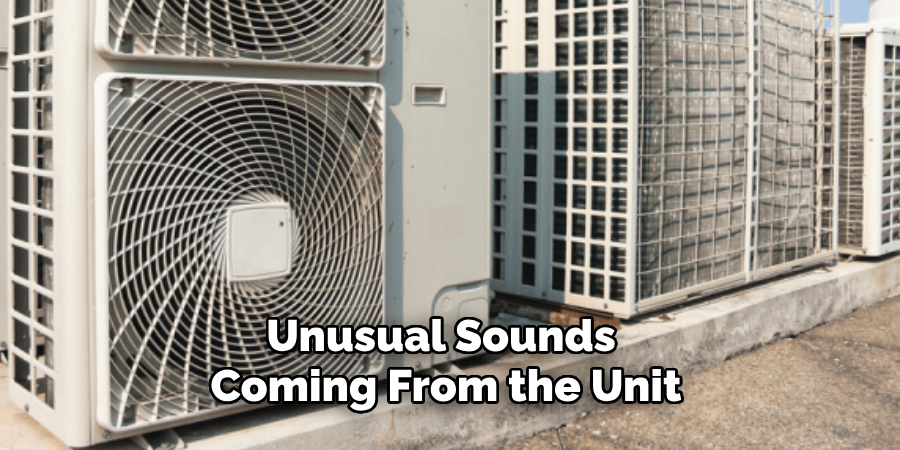
If you suspect a refrigerant leak but are unsure, using a refrigerant leak detector can provide a definitive answer. These handheld devices are designed to detect refrigerant gas in the air. To use one, simply pass the detector around the AC unit, focusing on areas where the refrigerant lines connect or where you suspect a leak. If the detector signals the presence of refrigerant, you’ve confirmed that the leak is due to refrigerant loss.
This method is much more accurate than visual inspection alone, especially for small or hard-to-detect leaks.
9. Monitor Humidity Levels Inside the Home
When an AC is leaking refrigerant, it can struggle to remove moisture from the air effectively, leading to higher indoor humidity levels. If you notice that your home feels more humid or that the air seems clammy even when the AC is running, this could be a sign of a refrigerant leak. Water leaks, on the other hand, won’t affect the humidity inside your home in the same way.
Monitoring the humidity levels can provide an additional clue that the issue may be with refrigerant rather than water drainage.
10. Check for Clogged Condensate Drain Line
A common cause of water leaks in an AC system is a clogged condensate drain line. The drain line is responsible for carrying away the condensation that forms on the evaporator coils. If this line becomes blocked by dirt, mold, or debris, water can back up and leak into your home. To check the drain line, locate it near the outdoor condenser unit and see if water is draining freely.
If the line is clogged, you can clear it with a wet/dry vacuum or by flushing it with water. A clogged condensate line is a clear sign of a water leak, not a refrigerant issue.

Conclusion
Diagnosing the difference between refrigerant and water leaks in your AC system is essential for maintaining optimal performance and preventing further damage. By closely monitoring the cooling efficiency, inspecting the drain pan, checking for ice on evaporator coils, and looking for any oily residue, homeowners can identify potential issues early on.
Listening for unusual sounds, observing water stains around the unit, and using a refrigerant leak detector further enhance your ability to understand the problem at hand. Hopefully, this article gave you some helpful tips about how to tell if ac is leaking refrigerant or water successfully, so now that you have the proper knowledge on how to get the job done, why not give it a try today?

